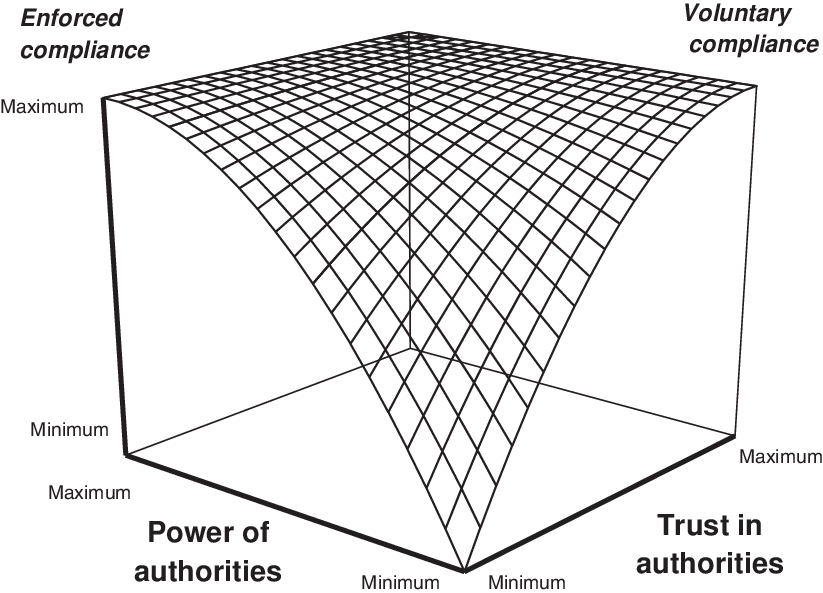What Are the Real Risks of Genetic Manipulation Technology? Part 1.
The public must have a say in its own future. Profiteering technocrats must not decide for all of us.
Here’s question I recently received:
Dear Dr. Jack:
Are you concerned about gene modification technology?
Yes, I am deeply concerned about gene modification technology. Like all tech, it can be used for good and evil. Before I go into the ways it can be abused and lead to harm, we have to distinguish between two type of gene modification technology: somatic gene modification technology (SGMT, non-heritable) and genetic modification technology (heritable). In Part 1 of this series, I will focus on SGMT.
Somatic gene modification technology (SGMT) changes genes in an individual in a way that is not passed on to future generations. There are some promising applications of this technology, and most who have looked into the risks of gene modification tech seriously take the position that when the genetic modification reverses a disease state - as would be possible in certain forms of blindness, cystic fibrosis and muscular dystrophy - without increasing the risk of other medical issues - such as cancer - then gene modification technology is a good thing. The genetic information would be integrated in limited number of cells in a person of a particular type, such as the retina, or in specific lung tissue. (Read about Gene Therapy for Cystic Fibrosis).
This use could be seen as as curing individuals of conditions they inherited. The problem is that society will have to decide where to draw the line between reversing a negative condition, and merely enhancing a human being (improvement), such as enhancement of athletic performance (gene doping). Let’s call this problem “The First Slippery Slope” (you’ll see why in a minute).
Knowing how big Pharma and big medicine operate as well as I do, my crystal ball tells me exactly what could happen over the next 5-30 years with SGMT:
It will be allowed for use in individual to reverse inherited, deadly or painful conditions.
A black market of genetic improvement “therapies” will spring up. It will be extremely expensive, and only the elite will be able to afford these “improvements”. These will include athletes, and those who have adopted “transhumanism”. There’s a small chance (around 1%) that this is already happening. Early adopters risk cancer due to off-target modifications: unintended mutations, of the type that has been seen in the Crispr/Cas9 gene editing system. These problems are being addressed.
The medical community will begin to pathologize conditions where the technology could be used to improve human beings. “Conditions” with fancy names like muscular asthenia will be contrived. Dr. Atlas will provide an injection of an mRNA with a retrovirus that infects muscle cells and causes more responsiveness to ambient growth hormone, and we’ll see a return to ads like these:
The Second Slippery Slope will be brought on by market forces that use the fixtures of societal influence and power to bring about compliance. This is not mere theory; we’ve see this before with voluntary vaccination programs that become mandated. Via a combination of legislation and PR to induce voluntary trust, those who will benefit financially will abuse the public’s trust and bring about, one way or the other, enforcement to maximize their market share without adding anything of real additional competitive value to an open market (this is also called “Rent-Seeking”).
Another Second Slippery Slope, from Meuhlbacher and Kirchler (2010).
Somatic gene modification used to reduce the risk of heritable risk of early onset dementia and neurodegeneration will be allowed, but then a route to increase intelligence will be found via genetic modification. At first it will be used by the elite - those who have funds for this boutique-level genetic improvements. But when Pharma recognizing the market is much larger, medical terms such as hypointelligence will be normalized by pathologizing below-level intelligence levels. The obedient media will inform the public that it’s now considered unethical to not vaccinate your newborn child against hypointelligence, and well-meaning, loving parents who comply will help change the cultural norm.
Social behavioral gene “therapy”. Scientists have already identified over 40 genes associated with aggression in humans and mice. One study reports a “warrior gene” - MAOA-L gene - that predicts whether a person will be aggressive when “provoked”. Someone will find a way to reduce aggression in mice via gene therapy. Studies will be done involving mice put under stress that causes them to be violent toward each other, to demonstrate that the treated mice won’t harm other mice. Human trials will be done on the most violent criminals and on children with autism who self-harm or hurt others. Criminals convicted of violent acts will be offered a choice: prison, or social behavioral gene therapy. The promise of a future without crime will be seen as looming, just over the horizon, and parents will be forced to test their children for evidence of “genetic aggression syndrome” and transfect their children to help eliminate violent crime from society. The specific therapy will likely be “gene inhibition therapy”, in which a gene that causes the brain to produce silencing RNA that shuts down the production of proteins associated with aggression will be transfected into infants.
Somewhere along the way, an Elon Musk-like figure will emerge that champions genetic modification to improve our species. Alternatively, in these Regulatory States of America, it will be more likely than not be a regulatory committee in HHS that votes to approve (and thereby mandate) genetic modification therapies. The committee will be infiltrated by people with direct conflicts of interests and ties to companies that own the patents on genetic modification therapies. He, she, or it will become, like The High Evolutionary of Marvel Comics, might even be early adopters - those who has demonstrated the utility of brain-enhancement by gene modification. Being super-intelligent, they will garner followers who take it upon themselves to decide the evolutionary fate of humanity.
Well, I don’t know if it’s me, or that I found Marvel Comic scenarios that match my predictions so well. I’ve scared myself enough already with this Part 1 of this series, and I’ve just started.
You can read more of my prognostication of this type more formally approached in this peer-reviewed analysis in Biological Theory, which I published in 2021.
Lyons-Weiler, J. 2021. Who are We, and Who (or What) Do We Want to Become? An Evolutionary Perspective on Biotransformative Technologies. Biological Theory.
PS I’m currently in Facebook jail for a week for calling out WashPo for attributing causality of Ivermectin to side effects based on phone calls to poison control center… instead of citing peer-reviewed clinical research studies. So please do me a favor and share this article across Facebook, Twitter, MeWe, Gettr and help right the wrongs of censorship.
If you’re not yet a paid subscriber, please consider pitching in. Your $7 per month paid subscription will power articles like these.









Thank you, this is all very interesting and, sadly, consistent with how our society has been operating so far.
A science question (asked from a position of my inner curious five-year-old).
We know that science changes al the time, as researchers discover new mechanisms the body does things, new connections between things that previously were assumed to be unrelated, etc. So in this case, when we talk about heritable vs. non-heritable, what is the degree of certainty that what is considered non-heritable won't turn out to be heritable 30 years from now? Has the heritability been thoroughly tested, given that genetic modification technology is relatively new, or is it based on the assumptions about genetics that are a part of today's understanding (as in, it is assumed that if the genetic modification is done in a locality that is outside of reproductive organs then it is not inherited?)
On a philosophical note, since you are talking about projections for the future, I am compelled to humbly share a sci-fi piece, written actually before the pandemic (and NOT intended as an instructions manual). Really, lots more to say since your predictions are both dark and sadly realistic... but I keep hoping that sanity will wake up sooner rather than later.
https://tessa.substack.com/p/deprecating-free-will-a-future-we